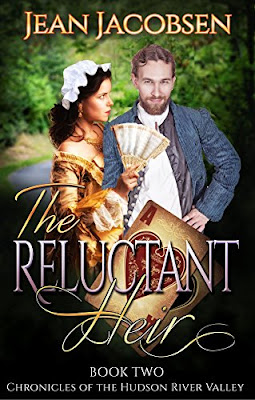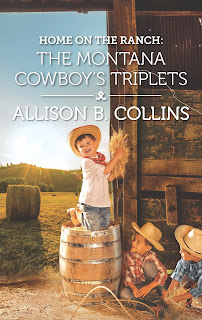 The Write Way Café welcomes Geza Tatrallyay, who lived the story of The Fencers and escaped danger many times over.
Tell us a little about The Fencers.
The Fencers
The Write Way Café welcomes Geza Tatrallyay, who lived the story of The Fencers and escaped danger many times over.
Tell us a little about The Fencers.
The Fencers is a memoir, the true story of a Romanian-Hungarian fencer friend, Paul Szabó, whom I got to know on the international circuit when I fenced for Canada, and whom I helped defect at the Montreal 1976 Olympics where we represented our respective countries. Paul is now a respected psychologist in Toronto. His is a wonderful tale of courage, friendship, intrigue, love, happiness, success and tragedy.
If The Fencers was made into a movie, who would play your main characters, and why?
Maybe Nicholas Hoult as Paul – he looks a bit like him and has had a series of interesting roles, including in the historical and biographical film,
The Current War, as Nikola Tesla.
And perhaps Jack O’ Connell as me – he has played an Olympic runner and is a very versatile actor.
How is this book related to your Cold War Escape stories?
It is the third in a trilogy of memoirs, all about escapes or defections in which I was involved during the Cold War. The first one,
For the Children, was my own family’s escape from Communist Hungary during the 1956 Revolution when I was seven. We were caught twice, and the third time we got lucky, fleeing across the border to Austria, from where we eventually ended up in Canada. It is harrowing tale in which my parents, especially my mother, were the heroes. They were willing to risk everything to give us their three children at the time a better life in a free country – hence the title.
The second book in the trilogy,
The Expo Affair, is the story of three Czechoslovak girls who approached me to help them defect to Canada when I was working in the Ontario Pavilion at EXPO’70 in 1970 in Osaka, Japan. The book takes place in then very exotic Japan at the height of the Cold War and I try to capture all of that in my writing. This also is a wonderful tale of courage, intrigue, friendship and romance in an era of drugs, free love, youth rebellion, yet very tense East-West relations.
Who is your intended audience and why should they read your book?
Really anybody. YA and older. Particularly people interested in real life, human stories. The changing but still on-going East-West conflict. Japan. Fencing. The Olympics. Sports. Immigrant success stories. The story is relevant and I hope of interest for everybody
How did you become involved with the subject or theme of The Fencers?
I lived the story. It is my story and that of my friend Paul, whom I got to know fencing on the international circuit and then better at the Olympics, during the defection and then afterward in Canada. The subject of East-West conflict infuses much of my writing especially these memoirs and the ‘Twisted’ trilogy of international crime thrillers.
Who is your favorite character from your book and why?
Paul. He is an amazing person, I admire very much. At twenty-one, to decide not to go back to a country where your people are oppressed, as an only child, to possibly never see your parents again, to face all the uncertainty of starting a new life with nothing other than just a friend, and to risk failure and the prospect of being court-martialed for desertion and the consequences – which could have been execution – required amazing courage. I try to capture this – and the difficulty of making this decision – in the book.
How about your least favorite character? What makes them less appealing to you?
Several that make a cameo appearance. Like the Russian pentathlete, Onischenko, because he is a cheater, or the Romanian fencer, Iorgu, who may have been working for the Securitate, the Romanian equivalent of the KGB.
Tell us a little bit about your cover art. Who designed it? Why did you go with that particular image/artwork?
It was Ian Shaw, my publisher at Deux Voiliers Publishing, also an excellent author, who came up with the idea. Actually, when he designed my author website, he found online the photo of me fencing and it was his idea to use the same picture on the cover. I think it works incredibly well.
Give us an interesting fun fact or a few about your book or series.
The Canadian Olympic Committee is helping to promote the book in Canada and because the memoir includes much about my fencing career at Harvard where I honed my skills, the Harvard Varsity Club and the Friends of Harvard Fencing are helping promote it too. So I am very pleased. I really had a lot of fun fencing in college and some of my best friends are still from those days. Some of the funniest bits in the book are in these Harvard episodes.
If you had to choose, which writer would you consider a mentor?
Graham Greene. He inspired me a lot, especially in my thrillers. The first book in my ‘Twisted’ trilogy of international crime thrillers,
Twisted Reasons, is a bit of a takeoff on his terrific novel,
The Third Man, which was made into my very favorite movie. I love the way in which he weaves the atmosphere of post-War Vienna into the story – the darkness, the devastation, yet the hope, and all the local color. And the characters he creates are memorable. Harry Lime and Holly Martins. Those are the things is I try to do in my writing as well.
Do you have any unique talents or hobbies?
I don’t know if I have a talent, but I love to write. To create or capture worlds with words. And I love to experiment with different genres – thrillers, poetry, memoirs, children’s pictures story books and now I am working on a collection of short stories. Other passions are hiking, exercise, reading, listening to music, food, wine and of course family.
Do you have any tips for readers or advice for other writers trying to get published?
Reading is a very personal thing. For example, the books I like my wife does not necessarily take to and vice versa. As a writer, I work in different genres, so I hope I offer something to a wide range of readers – I hope your audience will try at lest one of them!
For writers trying to get published, just keep at it, don’t give up. And more specifically, polish your work, maybe have it externally edited. I just read an amazing story,
The Philosopher’s Last Rhapsody, but it was full of grammatical errors a good editor would have picked up. It’s too bad, because the author obviously had done a lot of research, knew his material and put it all together exceedingly well, yet his writing was sloppy. So a five star book became a three and some people will not bother to finish it.
What can readers who enjoy your book do to help make it successful?
I would love it if my readers wrote a review and posted it on Amazon, Barnes & Noble, Goodreads, etc. Authors live by reviews, especially these days when it is so hard to get discovered. Also, please talk it up – tell your friends, introduce the book to your book clubs, have your library order it so others can read it. I would be extremely grateful for any of these actions by my readers.
What can we expect from you in the future?
During the last twelve months, I had six books published, so one every two months. It just happened that it all came together and manuscripts I had put out to different publishers were accepted and released.
Now I have several projects on the go. As I mentioned, I am working on an anthology of short stories and this is fairly advanced. But already up for publication is a reworked, updated second edition of
Arctic Meltdown, my very first thriller that I self-published in 2011, which will now be brought out by Black Opal Books, probably toward the end off this year or early next. I have already started to conceptualize a sequel to this compelling international / environmental thriller. A little more advanced is a book I feel must be written – although I am not sure I am the right person to do it – which is a non-fiction, more scholarly work on the Hungarian émigré conductors who came to this country and built these fabulous world-class orchestras in the USA. I am also writing poetry that will eventually go into a fourth collection – probably a sequel of sorts to
Extinction, the poetry collection released in April, so
Extinction II.
Lots on the go. But it is all fun for me. And I hope my readers, too, explore the different genres I write in. Happy reading!
The Fencers: A Cold War Escape Memoir
The Fencers is the third volume in a trilogy of autobiographical Cold War Escape stories. It is both an immigrant's narrative of seeking a better life and a brighter future and a sports memoir focusing on two Olympic fencers, one representing Canada, the other Romania. Most of all, it is the account of the author’s friendship with Paul Szabó, a Romanian-Hungarian epée fencer, Szabó’s love for a young woman he married and her tragic death. In Romania, the country Paul represented in the 1976 Olympics, Nicolae Ceaușescu was then President. Mismanagement, rampant corruption, mass surveillance, brutality and human rights abuses were rampant. Ceaușescu’s Stalinist secret police, the Securitate, was particularly notorious for purges, oppression and restrictions of freedom of the almost two million Hungarians, like Szabó, who had lived in Romania for centuries. And it was in this context that Paul, only twenty-one at the time takes the difficult decision to stay in Canada, with the prospect of never seeing his parents and homeland again. He approaches his friend, Tatrallyay, who against all odds helps him defect to Canada and start a new life in his chosen country.
The Fencers is an exciting true story of courage, friendship, love, happiness, success and tragedy.
Amazon Barnes & Noble
About Geza Tetrallyay:
Born in Budapest, Hungary, Geza escaped with his family in 1956 during the Hungarian Revolution, immigrating to Canada the same year. He grew up in Toronto, attending the University of Toronto Schools, where he was School Captain. He graduated from Harvard University with a BA in Human Ecology in 1972 (after taking a break in his studies to work as a host in the Ontario Pavilion at Expo70 in Osaka, Japan). Geza was selected as a Rhodes Scholar from Ontario, attending Oxford University and graduating with a BA/MA in Human Sciences in 1974; he completed his studies with a MSc in Economics from London School of Economics and Politics in 1975. Geza represented Canada as an epée fencer in the 1976 Olympic Games in Montreal.
Geza’s professional experience has included stints in government, international organizations, finance and environmental entrepreneurship. Since 2004, he has been semi-retired, managing a few investments mainly in the clean energy sector and devoting himself to his family and his writing. Geza is a citizen of Canada and Hungary, a green card holder with an American wife, a daughter living in San Francisco and a son in Nairobi, and currently divides his time between Barnard, Vermont and San Francisco.
Geza’s poetry and articles have been published in many journals in Canada and the US, and he has had nine books published (eight in the last five years), including four thrillers, two memoirs, two collections of poetry and a children’s picture storybook. He has several books as well in the pipeline or as work in progress.
















